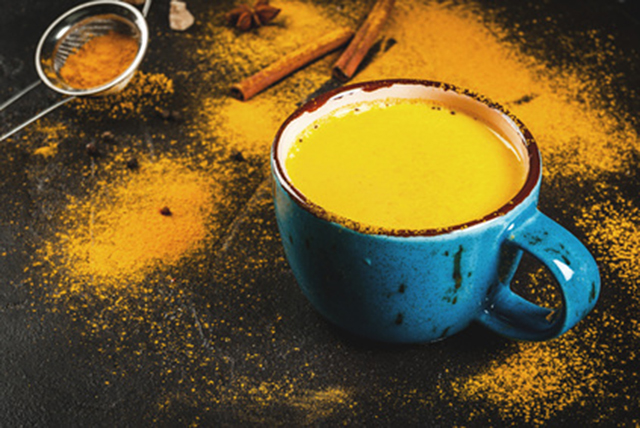This mood-elevating turmeric and coconut coffee is packed with ingredients that help combat depression and perk you up in the morning.
Recently a study from UCLA found that turmeric may have potent mood boosting and brain health properties.
The participants in the study who took curcumin had significant improvements in memory and attention, while those who took the placebo did not. In memory tests, those who took curcumin improved by 28 percent in 18 months.
Those who took curcumin had improvements in their moods, and less plaques were found in the brain as well.
Let’s take a look at the rest of the ingredients in this mood-elevating turmeric and coconut coffee.
Coconuts:
Organic coconuts are packed with healthy fats. They are also great for skin and hair health because of their high levels of the antioxidant vitamin E.
Coffee:
Research has shown that coffee can significantly lower the risk of many types of cancers, including colon cancer. It may also lower the risk of conditions like Parkinson’s and liver cirrhosis.
Ingredients:
4 oz of organic coffee or espresso
4 oz of coconut milk
1 tsp of turmeric
Raw honey or your natural sweetener of choice
1 tsp of coconut oil
Directions:
Add coffee, coconut milk, turmeric, sweetener and coconut oil to a blender
Blend until ingredients are combined and frothy
Make sure ingredients are organic
Enjoy this mood-elevating turmeric and coconut coffee!
Note: None of the information in our website is intended to diagnose, treat, cure or prevent any illness or disease. The content on our website is for educational purposes only.
Turmeric improves memory and helps boost mood.
Three to four cups of coffee per day reduces disease risk.
Drinking coffee can lower risk of early death.
1. “Curcumin Improves Memory and Mood, New UCLA Study Says.” UCLA Newsroom, UCLA, 22 Jan. 2018, newsroom.ucla.edu/releases/curcumin-improves-memory-and-mood-new-ucla-study-says.
2. “Memory and Brain Amyloid and Tau Effects of a Bioavailable Form of Curcumin in Non-Demented Adults: A Double-Blind, Placebo-Controlled 18-Month Trial.” The American Journal of Geriatric Psychiatry, Elsevier, 27 Oct. 2017, http://www.sciencedirect.com/science/article/pii/S1064748117305110?via=ihub.

















